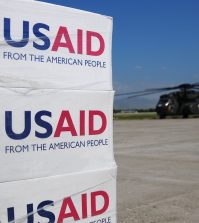Rwanda criminalises ‘humiliating’ cartoons and writing

Cartoons and writing that “humiliate” civil servants or members of parliament are now a criminal offence in Rwanda, after the government brought in new legislation.
Those found guilty of the new offence face up to two years in prison and a fine of up to $1150. The penalty doubles if the subject of the cartoon or writing is a member of parliament or a top-ranking official, according to an article in the Washington Post.
Editing images or statements “in bad faith” without stating it wasn’t the original version could also attract a fine of up to two million francs ($2300) and a year-long prison sentence.
It is unclear whether the law affects people who post such writings on social media, the Washington Post noted.
Criminalising criticism
“Any person who, verbally, by gestures or threats, in writings or cartoons, humiliates a member of parliament when exercising his/her mandate, a member of the Cabinet, security officers or any other person in charge of a public service in the performance or in connection with the performance of his/her duties, commits an offence,” the law states.
The Rwanda Journalists Association’s (ARJ) executive secretary, Gonza Muganwa, said the group would seek legal interpretations and advise members accordingly.
“This law is a classic case of people legislating to protect themselves rather than looking out for the interests of the public.
“In the trade of journalism, cartoons are by nature humorous and therefore easy for leaders to perceive them negatively or as humiliating even when it’s not,” Muganwa told The Associated Press.
Defaming Rwanda’s head of state is already illegal, bringing five to seven years in prison and a $8,140 fine, the article said.
But whilst acting to protect public servants, Rwanda has also decriminalised general defamation and press offences with another law passed at the end of September. The ARJ said that this was a very important step in expanding freedom of the press and free expression in general.























